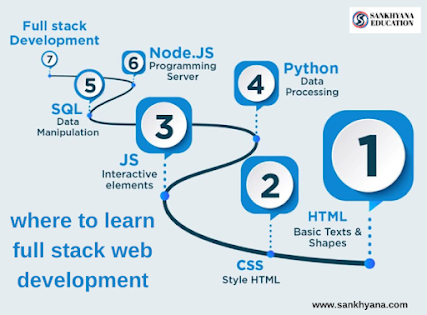5 Essential Skills for Landing a Clinical SAS Internship
5 Essential Skills for Landing a Clinical SAS Internship
Securing a clinical SAS internship can be an excellent stepping stone towards a successful career in the pharmaceutical and healthcare industries.
Introduction:
Securing a clinical SAS internship can be an excellent stepping stone towards a successful career in the pharmaceutical and healthcare industries. Clinical SAS (Statistical Analysis System) is a widely used software suite for data management, statistical analysis, and reporting in clinical trials. To stand out among other candidates and increase your chances of landing a coveted internship, you must possess essential skills that demonstrate your proficiency and dedication to the field. In this blog, we will outline five crucial skills that can help you excel in your pursuit of a clinical SAS internship.
1. Proficiency in SAS Programming:
A fundamental skill for any aspiring clinical SAS intern is proficiency in SAS programming. Familiarity with data manipulation, data cleaning, and statistical analysis using SAS is essential. Mastering SAS procedures such as DATA steps, PROC SQL, PROC REPORT, and statistical procedures like PROC MEANS and PROC FREQ will be highly advantageous. Demonstrating your ability to handle large datasets efficiently and produce accurate results will undoubtedly impress potential employers.
2. Understanding of Clinical Trials:
An in-depth understanding of the clinical trial process is vital for a clinical SAS intern. Familiarize yourself with the different phases of clinical trials, their objectives, and the data generated at each stage. Knowledge of clinical trial data standards, such as CDISC (Clinical Data Interchange Standards Consortium), will be beneficial. A strong grasp of medical terminology and an appreciation of the critical role data plays in drug development are crucial for success in this field.
3. Data Validation and Quality Control:
Clinical trial data is incredibly valuable, and its accuracy and reliability are paramount. Employers seek interns who possess strong data validation and quality control skills. Being able to identify data discrepancies, outliers, and potential errors is crucial. Familiarize yourself with data validation techniques, such as cross-validation and consistency checks, to ensure the integrity of the data.
4. Problem-Solving and Analytical Skills:
As a clinical SAS intern, you will encounter complex data-related challenges that require problem-solving and analytical prowess. Employers seek candidates who can think critically and propose effective solutions. Develop your analytical skills by practicing with real-world datasets, and consider taking online courses or workshops to enhance your problem-solving abilities. Demonstrating your capacity to handle and overcome data-related obstacles will set you apart from other candidates.
5. Effective Communication and Teamwork:
While technical skills are essential, communication and teamwork abilities are equally vital in a professional setting. Clinical SAS interns often collaborate with multidisciplinary teams, including statisticians, data managers, and medical professionals. The ability to communicate complex technical concepts in a clear and concise manner is highly valued. Showcase your team spirit and adaptability to work effectively in a collaborative environment.
Conclusion:
Landing a clinical SAS internship requires a combination of technical expertise and an understanding of the clinical research process. By honing your SAS programming skills, gaining a comprehensive grasp of clinical trials, excelling in data validation, and developing problem-solving and communication abilities, you can position yourself as an outstanding candidate. Remember to stay proactive, seek opportunities for learning and growth, and tailor your resume and cover letter to highlight your unique skills and qualifications. With determination and dedication, you can make a compelling case for why you are the ideal candidate for a clinical SAS internship and kickstart a rewarding career in the pharmaceutical and healthcare industries.
.png)

.png)
.png)
Comments
Post a Comment